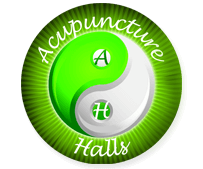
Photo credit to freepik.com
Alcohol addiction, a pervasive and challenging condition, affects millions worldwide, posing significant health risks and social consequences. As traditional treatment approaches evolve, alternative and complementary therapies are gaining attention. Among them, acupuncture stands out as a holistic method with potential benefits for individuals navigating the complex journey of alcohol addiction recovery. In this article, we delve into the principles, applications, and emerging evidence surrounding the use of acupuncture as a supportive modality in alcohol addiction treatment.
Understanding Acupuncture
Acupuncture, rooted in ancient Chinese medicine, is based on the concept of vital energy or Qi flowing through meridians in the body. The insertion of thin needles at specific acupuncture points aims to restore balance and promote the body’s natural healing mechanisms. In the context of alcohol addiction, acupuncture is employed as a complementary therapy to address various aspects of the condition, including cravings, withdrawal symptoms, and overall well-being.
Acupuncture Points for Alcohol Addiction
Acupuncturists targeting alcohol addiction typically focus on specific points associated with addiction-related symptoms. Common acupuncture points include:
- Shen Men (Spirit Gate): Located on the ear, Shen Men is often stimulated to alleviate anxiety, stress, and cravings associated with addiction.
- Liver and Kidney Points: Points on the liver and kidney meridians are targeted to address detoxification processes, support liver function, and enhance overall vitality.
- Spleen and Stomach Points: These points are often used to address digestive issues and promote balance in the body’s energy.
- Lung Points: Targeting lung meridian points may help individuals cope with grief, sadness, and the emotional aspects of addiction.
Mechanisms of Action
1. Neurotransmitter Modulation
Acupuncture is believed to influence the release of neurotransmitters such as dopamine and serotonin. This modulation may help manage mood, reduce anxiety, and mitigate the reward-driven aspects of alcohol addiction.
2. Stress Reduction
Acupuncture has well-documented stress-relieving effects. Given that stress often contributes to alcohol cravings and relapse, reducing stress through acupuncture can be beneficial in addiction recovery.
3. Support for Detoxification
Acupuncture is thought to support the body’s natural detoxification processes, aiding in the elimination of alcohol-related toxins.
4. Balancing Energy Flow
The overall goal of acupuncture is to restore balance to the body’s energy flow. By addressing imbalances associated with alcohol addiction, acupuncture contributes to a sense of equilibrium and well-being.
Research and Evidence
While research on acupuncture for alcohol addiction is ongoing, some studies suggest positive outcomes. A 2016 review published in the journal “Evidence-Based Complementary and Alternative Medicine” highlighted that acupuncture may be effective in reducing alcohol cravings and promoting abstinence. However, the authors emphasized the need for more rigorous, large-scale studies to establish acupuncture’s efficacy definitively.
Considerations for Individuals Seeking Acupuncture for Alcohol Addiction
- Integration with Comprehensive Treatment: Acupuncture is most effective when integrated into a comprehensive alcohol addiction treatment plan. It should complement evidence-based therapies such as counseling, support groups, and medical interventions.
- Individualized Treatment Plans: Acupuncturists assess each individual’s unique constitution, symptoms, and emotional state to tailor treatment plans accordingly. A personalized approach enhances the likelihood of success.
- Commitment to Recovery: Success with acupuncture in alcohol addiction recovery often requires a genuine commitment to sobriety. Individuals must actively participate in their treatment, communicate openly with their acupuncturist, and engage in other aspects of their recovery program.
- Collaboration with Healthcare Professionals: Acupuncture should be pursued under the guidance of qualified healthcare professionals, and communication between acupuncturists and primary care providers is crucial. This collaboration ensures a comprehensive and cohesive approach to treatment.
Conclusion
Acupuncture holds promise as a supportive therapy in the multifaceted journey of alcohol addiction recovery. While additional research is needed to establish its efficacy conclusively, many individuals report positive outcomes when acupuncture is integrated into their treatment plans. As part of a holistic approach, acupuncture addresses not only physical symptoms but also the emotional and psychological aspects of addiction. Those considering acupuncture for alcohol addiction should collaborate with qualified acupuncturists and healthcare professionals to develop a tailored and comprehensive strategy that aligns with their goals and enhances their overall well-being.
If you’re interested in trying acupuncture for alcohol addiction recovery, visit Acupuncture Halls in San Juan Capistrano, California. The clinic has a board-certified licensed acupuncturist which offers the best treatment. To make an appointment, call 949-510-6333 or use this online form.
